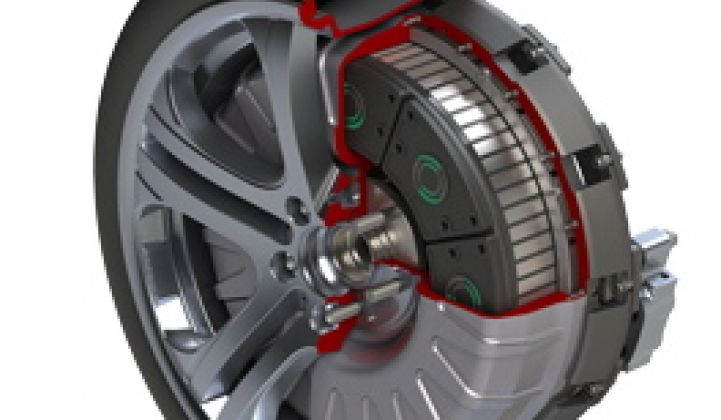Armed with a hefty $84 million in venture capital from U.S. and China-based investors, along with the "the father of the EV-1," Bob Purcell, as CEO, Protean Electric is looking to build a manufacturing facility in China to bring its in-wheel electric drive for electric vehicles to full commercial scale.
The idea behind an electric vehicle equipped with in-wheel motors is that the functions of the internal combustion engine, clutch, and transmission are no longer needed -- power from the motor is delivered directly to the wheel, making for a more-efficient system. The vehicle can be powered by two to four motors and can make use of regenerative braking.
Protean is going after light-duty vehicles, and its technology can be bolted onto existing designs. In-wheel motors can create hybrids from cars with internal combustion engines, raise the performance of vehicles, or apply to all-battery vehicles.
The startup is targeting the Chinese automobile market, a market that has emerged as the largest market in the world. According to the firm, in 2011, China automobile sales exceeded 18.5 million units with more than 14.5 million passenger cars.
According to the firm, Protean's in-wheel motors can provide:
- Fuel economy improvements of up to 30 percent depending on battery size
- High torque density
- Weight of only 68 pounds per motor
- Regenerative braking that lets up to 85 percent of the available kinetic energy to be recovered
Protean Electric's plans in China call for beginning prototype motor production early next year and volume production in 2014.
The firm is still in the development stage. This round was led by GSR Ventures, along with original investor Oak Investment Partners as well as Jiangsu New Times Holding Group.
Adding to the day's investment in advanced automotive technology, EcoMotors, a developer of opposed piston diesel engines, just raised $32.5 million in a Round C led by Braemar Energy Ventures along with existing investors Bill Gates and Khosla Ventures.
Protean's in-wheel electric drive design



